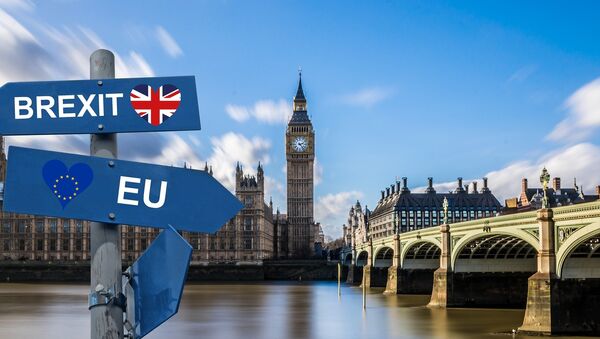The publication reported the ministers hope to convince EU leaders to agree to a two-month-long "grace period," if Prime Minister Theresa May can get Parliament to pass a Brexit deal, to allow time for Parliament to deal with more necessary legislation.
May came out against such an extension earlier on Tuesday, The Guardian reported.
"She was pretty clear she had no time for anyone calling for it to be extended," a Cabinet source said.
Parliament needs that extra time, since it hasn't even passed the existing Brexit deal, negotiated in secret with the EU by May last Fall. Both her Cabinet ministers and the legislature were deeply incensed by the closed-door negotiations, which they felt gave the UK a bad deal, and as a result, Parliament has tried twice to remove her from power — with one attempt by her own party and one by the opposition — and adamantly refused to pass her Brexit deal. Both ouster attempts failed, and May remains prime minister of an increasingly shaky Conservative government.
However, it's unknown whether Brussels will agree to a delay proposal, since EU leaders have so far refused any significant renegotiation of the deal they signed last year.
"The deal we have achieved is the best deal possible, the only deal possible," EU Commission President Jean-Claude Juncker said at the time. "There is no room whatsoever for renegotiation. But, of course, there is room, if used intelligently, there is room enough to give further clarifications and further interpretations."
The deadlock threatens a "no-deal Brexit," which would see the UK immediately depart from the EU customs union without a negotiated post-Brexit relationship. While May has said this will be bad for the country, others have dismissed those fears as unfounded.
The issue of the so-called "Irish backstop" has become the major point of contention in the deal. If the UK leaves the EU without a deal negotiated, the hard border between the UK's Northern Ireland and the Republic of Ireland, which together share the island, could reignite violent conflicts settled in the Good Friday agreement in 1998.
May's deal provides for a "soft border," which would include Northern Ireland in the customs union but not the rest of the UK, creating an extremely complex situation that the Democratic Unionist Party, which rules Northern Ireland and which also played kingmaker for May's government in Parliament, finds intolerable.




